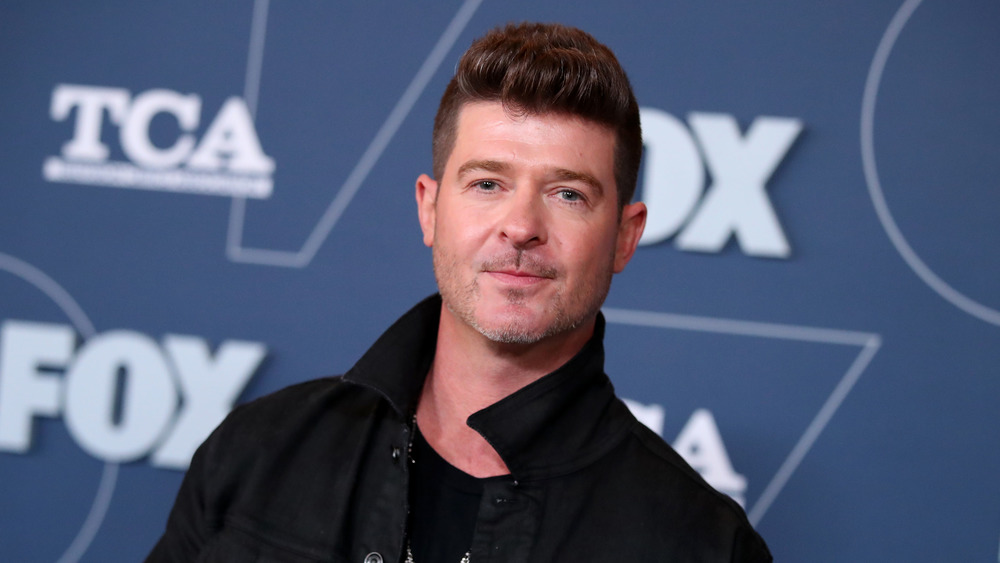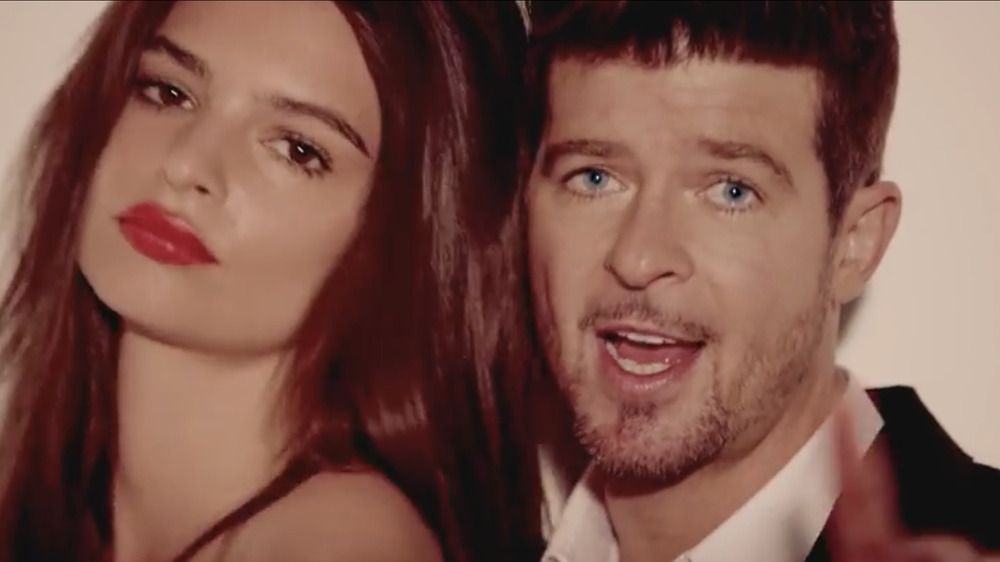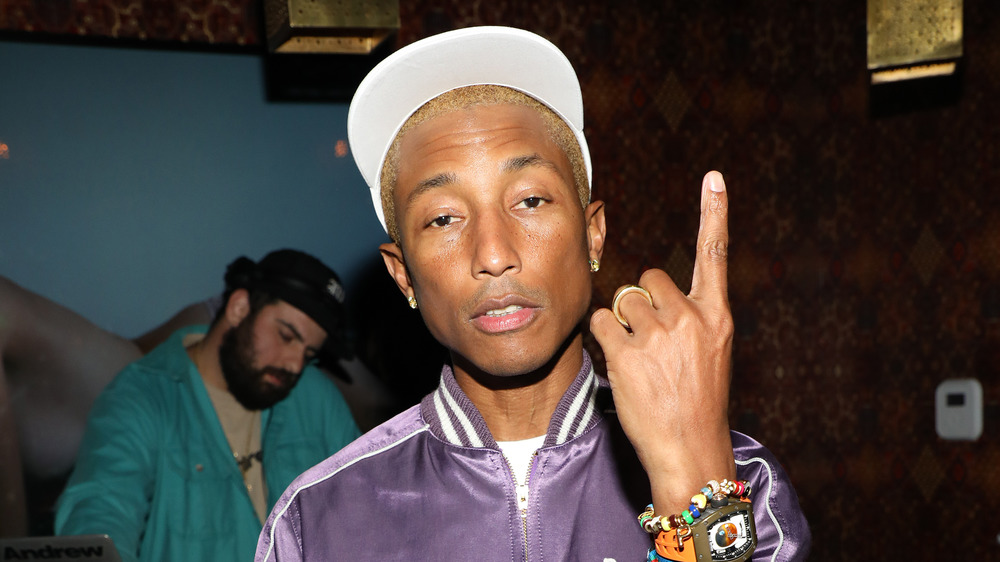The Real Meaning Behind Blurred Lines By Robin Thicke
Singer Robin Thicke's "Blurred Lines" was the definitive bop of the summer of 2013. Featuring rapper T.I.'s Southern twang in the bridge, the song also showcased a catchy bass and snare-heavy drumline courtesy of rapper-producer Pharrell Williams that seemed closely inspired by legendary Motown crooner Marvin Gaye's "Got It Going on" (invoking a nasty copyright battle with Gaye's estate in 2013). While the song rose to the top spot on Billboard's Hot 100 chart in June 2013, International Business Times reported, its music video made an even bigger splash with its casually glamorous depiction of nudity, leading YouTube to remove it and require a reshot SFW version.
The original, unrated video features three topless models (Emily Ratajkowski, Jessi M'Bengue, and Elle Evans) adorned in nothing but bright red lipstick and nude-colored thongs next to a fully-dressed Thicke, T.I., and Williams. The imagery conjures memories of a Robert Palmer music video if the '80s pop star had lived through the "Free the Nipple" movement. The censored version is almost shot-for-shot the same as the explicit one, except this time with all three women scantily covered in matching white crop tops and hot pants. To both videos' credit, all participants genuinely looked like they were having fun filming.
But for all the attention the racy video garnered, it was the song's actual lyrics that made "Blurred Lines" the most controversial track of the 2010s. Read on to find out what Robin Thicke and his collaborators said about the song's true meaning.
Robin Thicke defended Blurred Lines against accusations
It is worth noting that Robin Thicke's 2013 "Blurred Lines" single came out well before the #MeToo movement, which went viral when actress Alyssa Milano tweeted about it in October 2017. The trend encouraged women to speak out about their experiences with sexual harassment and assault, bringing discussions of rape culture into the mainstream. Thicke's lyrics, like "I hate these blurred lines... I know you want it" and "Do it like it hurt... What, you don't like work" may have promoted that culture, with listeners calling it "rapey," according to The Guardian's Dorian Lynskey.
Thicke, in a July 2013 interview with The Daily Star (via Digital Spy), insisted the song was just "throwaway fun" as well as a celebration of female sexual empowerment. "Pharrell [Williams] and I... have a lot of respect for women. So the way we were seeing it is, 'I know man tries to domesticate you but you're an animal, you are just like any man,'" he elaborated.
In July 2015, Thicke maintained his stance that "Blurred Lines" didn't degrade women or promote rape. He told The New York Times, "I have never and would never write a song with any negative connotation like that." The singer suggested that the music video for the song tainted its actual lyrics for people with its inclusion of nudity. "Once the video came out, that changed the conversation," Thicke observed.
Pharrell Williams now regrets taking part in Blurred Lines
Pharrell Williams told GQ in 2019 that he now regrets his part in "Blurred Lines." This is a departure from his previous stance — in 2014, he told Pitchfork, "People who are agitated just want to be mad, and I accept their opinion." Williams further clarified Thicke's lyrics, "Just let me liberate you.... / You don't need no papers / That man is not your maker," saying these lyrics clearly told the subject of Thicke's song that she was not a possession any man could own.
When he changed his tune in 2019 about the song's social implications, Williams shared with GQ that he had since come to see its lyrics contextualized in what he called the "chauvinist culture in our country." Williams reflected that while he and Thicke had only admiration for women in mind when they made "Blurred Lines," some of the song's vocabulary was similar to that of actual sexual predators. "I realized that there are men who use that same language when taking advantage of a woman, and it doesn't matter that that's not my behavior," Williams revealed.
While it's up for debate whether "Blurred Lines" can ever be redeemed from its controversy, the song's least-discussed awful lyric might be when Thicke could not find a rhyme for "hug me" and therefore sings in the next line, "What rhymes with 'hug me'?"



